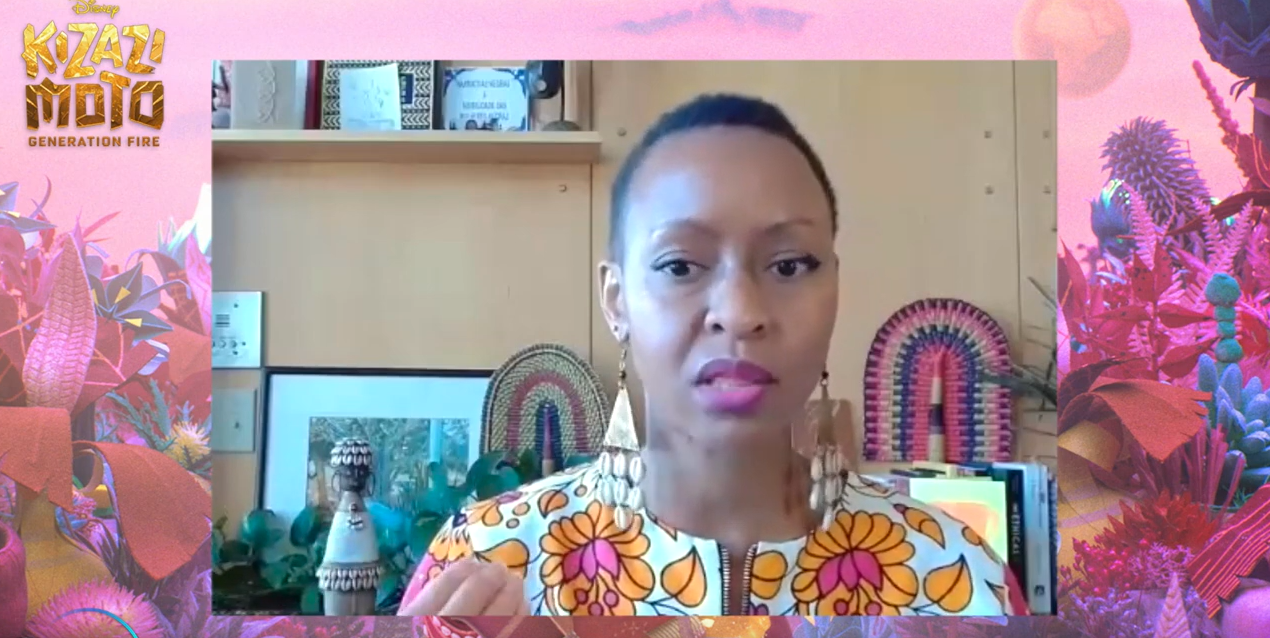Master KG. Photo: Facebook.
“Jerusalema Ikhaya Lami, Ngilondol loze, Uhambe Nami, zungangishiyi Lami…” (guard me, walk with me, do not leave me here), so goes the song that saw the whole world erupt to a dance challenge of huge and unparalleled proportions in modern history.
“Jerusalema,” hit global headlines for rallying the world as it grappled against the Covid-19 crisis and the uncertainty that engulfed people of various nationalities.
Professionals from a variety of backgrounds and sectors caught the Jerusalema fire. It created a frenzied following by healthcare staff in hospitals, prison officials, monks and nuns, Latino dancers, fire safety workers, employees at companies, soldiers, lawyers, cops, and students across Africa, the U.S., Europe, Russia, China, other Asian countries, Latin America, Australia. All participated in the challenge.
This powerful song was the brainchild of young Master KG, a South Africa—based DJ and producer. It was sung by Nomcebo Zikode who propelled the song to become a global anthem. The music video was released at the end of 2019 on YouTube and attracted global attention at the beginning of 2020.
The song made waves that went beyond South Africa, soon topping 351 million viewership. Toddlers, grandpas and grandmas, worshippers of all faiths, were tickled by the global phenomenon. The catchy song defied international boundaries and showcased why dancing is a passion and way of life for Africans. This continent has a dance step for every emotion, be it sorrow or joy, worry, fear or despair, loss or victory.
The dance lifted people’s spirits during this Covid-19 gloom that has disrupted sports, travel, and all spaces that enabled people to enjoy social moments. Multinational companies, government organizations, educational institutions, and even hospitality facilities paraded their best teams, dancing to the song as they promoted their services or products.
So it will come as a shock to many people that very little income has accrued to the generators of the content. Had the world paid for the content, both Master KG and Zikode would be multi-billionaires by now.
Master KG wants to change this. His record label and the Southern African Music Rights Organization are now suing a number of international companies and brands for using Jerusalema for their own endorsements through the #JarusalemaChallange craze that gripped the globe since the release of the song in 2019.
Over 100,000 videos have been made by companies–including right here, by Zimbabwean companies and parastatals–using Master KG’s song without a license to do so. Many companies, fearing lawsuits, have started deleting the content on various media platforms.
Globally, many entities breached intellectual property rights that prohibit the commercial use of the content, including music by individuals and companies, without an agreement with the owner.
Warner Music, with which Master KG is under contract, is demanding license fees for the use of the song in the videos. Recently, Germany paid a licensing fee to Warner Music, after several police forces took part in the Jerusalema viral dance challenge.
“If your company used Jerusalema Challenge for a video, brace yourself, a bill may be coming your way,” says one of the posters sent out by SAMRO, an organization responsible for artists’ royalties, and sponsorship, of the arts industry in the Southern Africa region.
Several companies are being served with court papers to pay up license fees for the song they used. Piracy is a major cancer in Africa and across the world. It has left most African artistes poorer.
While developed countries such as the U.S., Canada, France, and Germany have come up with ways to reduce, discourage, and even dismantle some piracy networks, Africa has little or no mechanisms to curb piracy. As a result, most artists in Africa are losing their investments in creative content to piracy.
The latest move by Warner Music and Master KG has rattled the world. It’s a seismic change that offers hope to African artistes whose governments have little or no mechanism to effectively reduce piracy within their frontiers.
It’s only fitting that the world pay for the valued content generated by Africa’s cultural industry. Piracy hurts African musicians and leave them impoverished. Many struggle to survive using proceeds from live performances, but that option has been eliminated due to Covid-19 restrictions. The only people profiting from the sales are the traders who sell CDs and USB sticks with pirated music. The content creators, filmmakers, composers, songwriters, and singers are left with empty pockets.
Rising digitalization on the continent has made things worse. Cultural content can now be stolen easily with the help of a computer. Many people who love African music and films, simply download works onto their smartphones from home. The International Confederation of Authors and Composers (CISAC) estimates that some $11 billion in licensing fees was collected globally in 2016, of which about $10 billion came from music alone. In Africa, some $81 million was collected, with almost half of that coming from South Africa, the confederation says.
Many countries, including those in Africa, have insufficient legal frameworks for copyright protection. There’s resistance from consumers of the content, and the limited administrative mechanisms for enforcing artists’ rights. Most of the illegal downloading targets music, television and video sites where consumers use “peer-to-peer” formats to download songs and video clips onto their laptops and home computers from websites without paying a fee.
The only hope for now is to raise awareness on the damaging economic and social impact of illicit downloading activity. Until effective measures are adopted to curb piracy, Africa’s creative industry will continue to lose millions of dollars to illicit down loading.
The effort by Master KG, through Warner, could help spur a movement for protecting the rights of African entertainers.
Sifelani Tsiko is a veteran journalist based in Harare, Zimbabwe and can be reached via [email protected]






